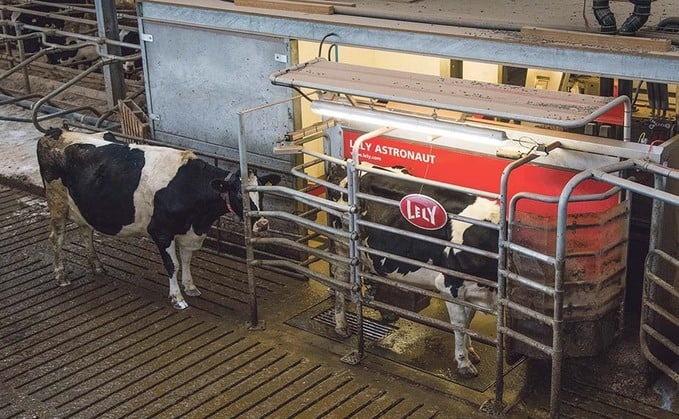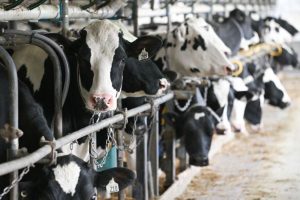
When it comes to milk pricing, how should dairy farmers navigate the highs and lows?
Dairy farmers are their own worst enemies when it comes to failing to react to falling milk prices, industry consultant Chris Walkland told attendees at a UK Dairy Day seminar on milk pricing.
It only takes a small level of over-supply on the world market for prices to fall, and he said producers must react to changes faster to avoid price drops.
If they do not, Mr Walkland said they could be storing up serious problems for the future. And he said he thought processors should have cut prices faster and further this year.
He said: “Farmers are a nightmare on this issue and processors have been far too gentle on them this year. They should have made bigger cuts, not just dibbles and dabbles.
“And if milk volumes do not drop, then prices will continue to fall.”
Until the industry reacts quicker, he suggested the problems were going to last longer and be increasingly painful.
Contract reform
But he highlighted the opposite side of the coin – pointing out that farmers did have power when supplies were lower than required.
He said: “You could get more power from contract reform if you use it wisely.”
He said the contract reform might help secure better terms on issues such as contract notice periods, and like other speakers in the panel session, which was looking at the future of milk pricing and processing, he said he did sympathise with farmers over who should bear the cost of sustainability.
He said: “Traders do not give a monkey’s about sustainability and they do not want to pay any money for it.
“It is crucial for the future of milk pricing that they start to cough up for it.”
Sustainability
Retailers, he said, were very similar in their thinking that farmers should bear the cost of sustainability themselves.
John Allen, of Kite Consulting, also commented on the reluctance of much of the market to reward farmers for their work.
While some aligned and Muller contracts did reward them, many did not.
He said: “I cannot see anybody else getting paid for the things the consumers say they want.”
With regarding to reacting quicker, John Giles, of Promar International, cited examples from the horticultural sector, in which the company is also involved.
He said: “Growers have reacted when facing difficulties. Some have cut production; reduced the number of varieties they grow; dropped non-profitable varieties or switched to other crops.
“In some cases they have said ‘enough is enough’ and ceased production completely.
“In dairy farming, changing the profile of production could take longer for all sorts of reasons. But just carrying on producing seems to be a recipe for suicide.”




















